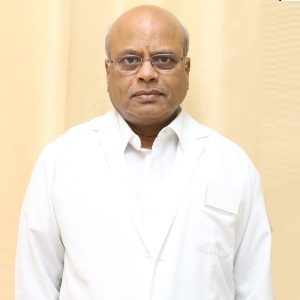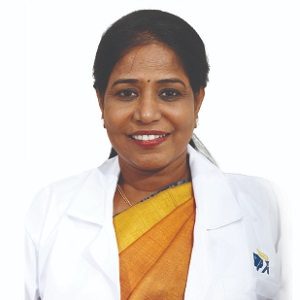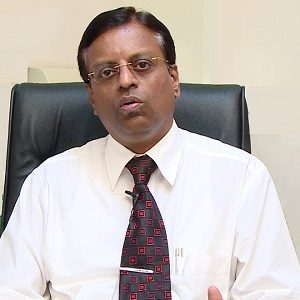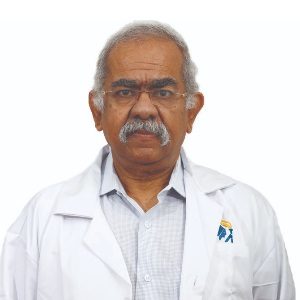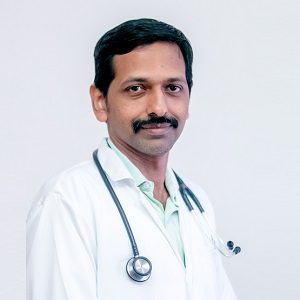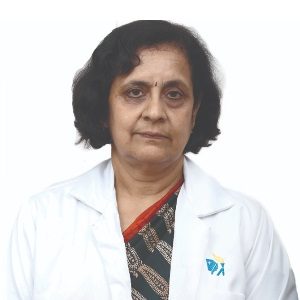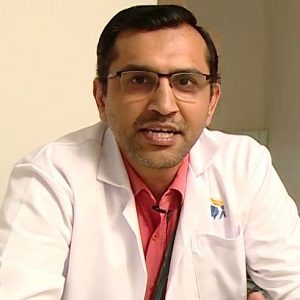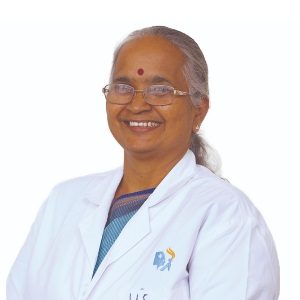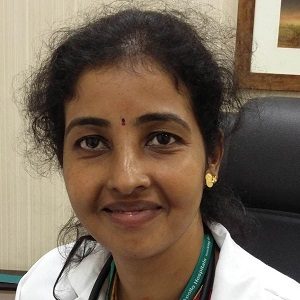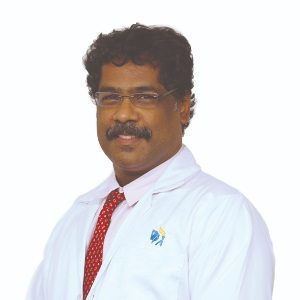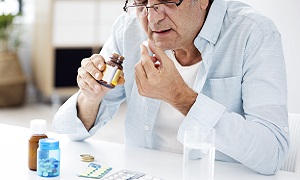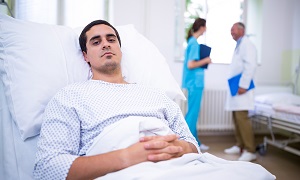Best Doctors in India for Colonoscopy
- Surgical Gastroenterologist, Chennai, India
- Over 27 years’ experience
Profile Highlights:
- Dr. Surendran R is an experienced gastroenterologist from Chennai, Tamil Nadu.
- He has been rewarded for his contributions to the field several times. He received The Best Doctor award from the Tamil Nadu government (2002) in his name.
- Being a gastroenterologist, he specializes in treating patients with problems such as Bowel Obstruction, Pancreatic diseases, Esophagus disorders, Fistula treatment, etc.
- Gastroenterologist and GI Medicine Specialist, Chennai, India
- Over 23 years’ experience
Profile Highlights:
- Dr. Revathy Shanmugam is an experienced Gastroenterologist in Tamil Nadu, having an experience of 23 years in the management of GI disorders, Training & Teaching.
- She is highly skilled in the services like Liver Disease Treatment and Inflammatory Bowel Disease (IBD) Treatment.
- She has published various scholarly works in many National & International Publications of Medical Gastroenterology.
- Gastroenterologist and GI Medicine Specialist, Chennai, India
- Over 32 years’ experience
Profile Highlights:
- Dr. Hariharan Muthuswamy is a veteran Gastroenterologist and Hepatologist in India with 22 years of experience (specialist).
- Dr. Muthuswamy treated his patients with Non-Surgical Piles treatment, Liver Disease Treatment, Hepatitis E, Hepatitis A Treatment and Hepatitis B Treatment, Hemorrhoids Treatment, Colonoscopy, Stomach, and Intestinal Treatments, etc.
- He has a special interest in Capsule Endoscopy, Therapeutic Endoscopy, GERD, and Irritable Bowel Syndrome (IBS).
- Gastroenterologist and GI Medicine Specialist, Chennai, India
- Over 32 years’ experience
Profile Highlights:
- Dr. Mohan A T is a veteran GI medicine specialist in India with an experience of 32 years.
- Dr. Mohan, an alumnus of Madras University, is the Co-Ordinator of the Indian Society of Enteral and Parenteral Nutrition.
- He is an expert in treating Gastritis, acidity, Ulcerative Colitis, and many other Intestinal and bowel-related Treatments. In addition to these, he offers Colonoscopy, Gastroscopy, and Endoscopy.
- Gastroenterologist and GI Medicine Specialist, Chennai, India
- Over 15 years’ experience
Profile Highlights:
- Dr. Piramanayagam P is one of the young Gastroenterologists in India, having an experience of 15 years in the field.
- The doctor offer services like Gall Bladder (Biliary) Stone treatment, IBS treatment, Acidity Treatment, Endoscopy, and stomach and intestine dysfunction.
- He published many review articles and books under his name.
- Gastroenterologist and GI Medicine Specialist, Chennai, India
- Over 39 years’ experience
Profile Highlights:
- Dr. Sarojini Parameswaran is one of the renowned Gastroenterologist with an overall experience of 39 years.
- Dr. Parameswaran is brilliant and quick with diagnosis. She has 22 years of specialist experience.
- Gastroenterologist and GI Medicine Specialist, Chennai, India
- Over 24 years’ experience
Profile Highlights:
- Dr. Seshadri Venkatesh P is a well-known Gastroenterologist in India, having 24 years of experience in Stomach and Intestine disorders.
- Dr. Seshadri acquired proficiency in managing Bladder Cancer surgery, hemorrhoids, Irritable Bowel Syndrome (IBS) Treatment, etc.
- He holds membership in Tamil Nadu Medical Council.
- Gastroenterologist and GI Medicine Specialist, Chennai, India
- Over 40 years’ experience
Profile Highlights:
- Dr. Usha Srinivas is a Gastroenterologist in India with an experience of 40+ years in GI in medicine and academics.
- Patients visit her for consultation and treatment of abdominal pain, Gall Bladder (Biliary) Stone, Gastroenteritis, Jaundice, Colonoscopy, Steatosis, Constipation Treatment, Hepatitis C Treatment, Hepatitis E Treatment, Hemorrhoids Treatment, Piles Treatment (Non-Surgical), Gastritis Treatment, Ulcerative Colitis Treatment, and others.
- Gastroenterologist and GI Medicine Specialist, Chennai, India
- Over 18 years’ experience
Profile Highlights:
- Dr. Preethi M is one of the best gastroenterologists in India, with 18 years of expertise.
- Dr. Preethi received many awards for her contribution to the field.
- She offers consultation for Irritable Bowel Syndrome (IBS), Hemorrhoids, Endoscopy, female problems, and other gastrointestinal issues.
- Gastroenterologist and GI Medicine Specialist, Chennai, India
- Over 23 years’ experience
Profile Highlights:
- Dr. Ubal Dhus is a GI specialist doctor in South India who is proficiently managing Gastroenterological disorders for the past 23 years.
- He acquired his medical degree from Madras University, Chennai, and served people with Hemorrhoids Treatment, and Irritable Bowel Syndrome (IBS) Treatment.
Best Hospitals in India for Colonoscopy
Venkateshwar Hospital, Dwarka, New Delhi
- City: New Delhi, India
Hospital Highlights:
- State-of-the-art technology and devoted healthcare professionals have been brought together under one roof at Venkateshwar Hospital to provide genuine medical care. The hospital’s professionals work together as a team to deliver the best possible treatment to their patients, using the most sophisticated equipment and information technology.
- Venkateshwar Hospital’s mission is to attain global excellence in healthcare by employing evidence-based, ethical clinical practices and cutting-edge technology by a team of highly skilled experts.
MGM Healthcare, Chennai
- City: Chennai, India
Hospital Highlights:
- Located in Chennai, India, MGM Healthcare is a top multispecialty hospital that provides all medical services under one roof.
- Since its founding in 2019, MGM Healthcare has quickly become a leading national referral centre, creating several innovative flagship initiatives.
- MGM Healthcare combines next-generation medical and digital technologies to provide better patient results.
- With 12 centres of excellence, more than 400 inpatient beds, 100 intensive care unit beds, and 24/7 emergency care, MGM Healthcare leaves no chance in redefining the patient experience in Chennai.
- MGM Healthcare boasts 250+ expert doctors across 30+ departments, including Cardiology, Pulmonology, Neurology, Obstetrics & Gynaecology, and more.
- They house 12 specialized Centres of Excellence, including Neurosciences, Orthopaedics, and Multi-Organ Transplantation.
- Their team of doctors, nurses, and paramedics works together to give every patient individualized treatment.
COLONOSCOPY
Colonoscopy is a procedure which can enable your doctor to evaluate the insides of your colon (large intestine or large bowel). The colonoscope is a long and flexible tube, which has the thickness of a finger. It has a camera as well as a source of light on its tip.
During this procedure, a long and flexible tube is inserted into the rectum. The camera at the top of the tube allows your doctor to view the insides of your entire colon. If required, polyps or other types of abnormal tissue can also be removed during a colonoscopy. During this procedure, tissue samples can also be taken.
Purpose
Colonoscopy is done for several reasons. Most of them are performed as part of screening programs for diagnosing colon cancer. It can also be done for other reasons, such as for investigating the cause of blood in the stool, diarrhea, abdominal pain or any abnormality found in the colon.
Individuals having a previous history of polyps or colon cancer are usually advised to have colonoscopies regularly. Certain individuals, with a family history of some type of non-colonic cancers or colonic problems that might be associated with colon cancers can also be advised to have periodic colonoscopies since their risks for polyps or colon cancer are greater.
Depending on the degree of the risk for cancer, it is decided how often one should undergo colonoscopy. It is recommended that even healthy people who are at a normal risk for colon cancer undergo it at the age of 50 and every 10 years thereafter to remove colonic polyps.
Preparation
Before the colonoscopy, you need to clean out your colon. Any residue inside will obscure the view of your colon as well as rectum during your exam.
For emptying, your doctor can ask you to:
Follow a special diet the day before your exam
You will not be able to eat solid food the day before your exam. Stick to plain water, tea or coffee and avoid milk, cream, broth, and carbonated beverages. Also avoid red liquids, as it can be mistaken with blood during the procedure. On the night before the exam, it is best if you don’t eat or drink.
Take a laxative
Use an enema kit
Sometimes you may need to use an over-the-counter enema kit, either the night before your colonoscopy or a few hours before the procedure, in order to empty the colon. Since this can only effectively empty the lower colon, it is usually not recommended as the primary way for emptying the colon.
Adjust your medications
At least a week prior to your exam, remind your doctor of your medications, especially if you are having diabetes, high blood pressure or heart problems. If you take medications or supplements containing iron, you need to inform him as well.
Inform your doctor if you take aspirin or such medications that thin the blood. You may need to adjust your dosages or temporarily stop using your medications until the procedure.
During the procedure
You will need to wear a gown during your colonoscopy, but most likely nothing else. Sedation is also recommended sometimes and a mild sedative may be given in the form of a pill. In other cases, the sedatives can be combined with an intravenous pain medication so that any kind of pain or discomfort can be minimized.
The exam will begin with you lying on your side on the exam table, with knees drawn toward your chest. The colonoscope will then be inserted into your rectum by your doctor.
The scope is long enough to reach any length of your colon and it contains a light and a tube that that will allow your doctor to pump air or carbon dioxide into the colon. The air or carbon dioxide inflates the colon, which will provide a much better view of the lining of the colon. When the scope is moved or air is introduced, you might experience a little abdominal cramping or the urge to have a bowel movement.
The tiny video camera on the tip of the colonoscope, will be sending images to an external monitor. This will help your doctor study the inside of your colon. Other instruments can also be inserted through the channel, for taking tissue samples or removing polyps or other areas of abnormal tissue. Around 30 minutes to an hour is usually required for a colonoscopy.
After the procedure
After the exam, it can take around an hour for you to recover from the sedative. You would need someone to take you home, as it would take a full day for the sedative to wear off fully. Remember not to drive or go back to your work.
If a polyp was removed during the colonoscopy, you might be advised to eat a special diet for some time. After the procedure, you might also feel bloated for few hours. Walking can help you relieve any discomfort.
You may also notice some blood with your first bowel movement after your exam. However, this shouldn’t alarm you. If you continue to pass blood or blood clots or if you are having persistent abdominal pain or a fever, you should talk to your doctor.
Risks
Although rare, sometimes a colonoscopy can lead to a few complications which can include:
- Adverse reaction to the sedative used
- A tear in the colon or rectum wall
- Bleeding from the site where the tissue sample or polyp was taken
It is best if you discuss the risks with your doctor, before the procedure.

